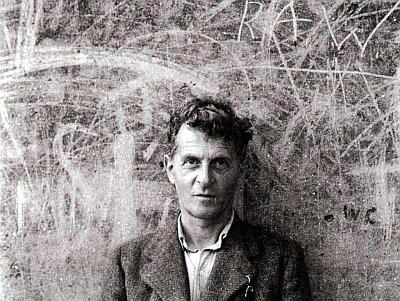The views expressed in our content reflect individual perspectives and do not represent the authoritative views of the Baha'i Faith.
In his famous work No Exit, the existentialist writer Jean-Paul Sartre said “Hell is—other people!”
And in his equally famous answer, the great philosopher Ludwig Wittgenstein said “Hell isn’t other people. Hell is yourself.”
Wittgenstein’s simple three-word aphorism serves as the number one Astounding Thing you never knew about the netherworld: Hell is yourself.
How can that be? You’ve worked hard all your life to become a good person. You’ve tried to develop praiseworthy character traits. You gave at the office. You love your mom.
But each of us, no matter our level of psychological development and maturation, faces the inborn human challenge of the insistent self. What psychiatrists call our ego and mystics call the self makes its own demands, and they’re very hard for us to avoid. We all fight inner battles in life, and those ever-present inner battles eventually define us. Every human being has a higher nature, a soul that wants to rise; and a lower nature, a mind and a body that want to indulge in the physical. That dualistic identity, the confluence of the two worlds, defines us as human. As a result, every one of us struggles with the inner conflict between our two basic human natures. Which one should we follow?
Our soul, the Baha’i teachings say, is our real self.
Our soul shines with those eternal qualities of character—love and compassion, kindness and courage, faith and fidelity—that truly form us as human beings. Our soul is our essence, defining who we truly are. The body dies, but the soul lives on forever, an everlasting reality in the spiritual realm.
But our ego, that insistent self, the part of “yourself” Wittgenstein called hell, keeps up the struggle every day we’re alive on this Earth. Like a child, that self desires diversions, material things, gratification. It has needs and demands and it wants them met–now. It also has lots of company, because an inflated sense of self plagues many cultures around the world today. Entitlement, selfish materialistic behaviors and a general disregard for the welfare of the whole all characterize that over-inflated sense of the importance of the individual ego.
However–in Buddhism, in Sufism, in various Hindu practices and in many other mystical traditions, transcending the ego plays a critical role in human development. For Baha’is, our inner struggle with the insistent self calls each person toward God and away from the ego; toward service to others and away from selfishness; toward spiritual development and away from material desires:
Where is Paradise, and where is Hell?’ Say: ’The one is reunion with Me; the other thine own self… –Baha’u’llah, Epistle to the Son of the Wolf, p. 132.
Apparently Wittgenstein came to the same conclusion the Baha’i teachings do—Hell is your self. Hell is that temporary, grasping and insistent part of your self we call the ego. Hell is what happens when, as Abdu’l-Baha puts it metaphorically, the darkness conquers the light:
Man is not a pre-existent being, but a newly produced and created being, consisting of two aspects or portions, the spiritual and material, which may be likened to hell and paradise; and he does not know whether he will be in hell or paradise. For instance, man is composed of evil as well as good, of darkness as well as light, of guidance as well as misleading; the most evil character is to be found in man, while the greatest and most excellent character is also found in him. We must see that the good qualities gain victory over the bad. If so, the man will become an “angel,” but if the bad qualities conquer the good ones, then he will become a “devil.” If the light conquers the darkness in man, of course he will be true light, and if the darkness conquers the light, he will be of the material. – Baha’i Scriptures, p. 499)
Each person has this struggle at the center of their spiritual life. When the Baha’i teachings call upon us to seek the higher and more lasting realities, to develop our ability to love one another, to grow spiritually and transcend the self, they ask us to consciously progress from hell to heaven:
Every imperfect soul is self-centred and thinketh only of his own good. But as his thoughts expand a little he will begin to think of the welfare and comfort of his family. If his ideas still more widen, his concern will be the felicity of his fellow citizens; and if still they widen, he will be thinking of the glory of his land and of his race. But when ideas and views reach the utmost degree of expansion and attain the stage of perfection, then will he be interested in the exaltation of humankind. He will then be the well-wisher of all men and the seeker of the weal and prosperity of all lands. This is indicative of perfection.
Thus, the divine Manifestations of God had a universal and all-inclusive conception. They endeavoured for the sake of everyone’s life and engaged in the service of universal education. The area of their aims was not limited — nay, rather, it was wide and all-inclusive.
Therefore, ye must also be thinking of everyone, so that mankind may be educated, character moderated and this world may turn into a Garden of Eden.
Love ye all religions and all races with a love that is true and sincere and show that love through deeds and not through the tongue; for the latter hath no importance, as the majority of men are, in speech, well-wishers, while action is the best. – Abdu’l-Baha, Selections from the Writings of Abdu’l-Baha, p. 68.

















Comments
Sign in or create an account
Continue with Googleor